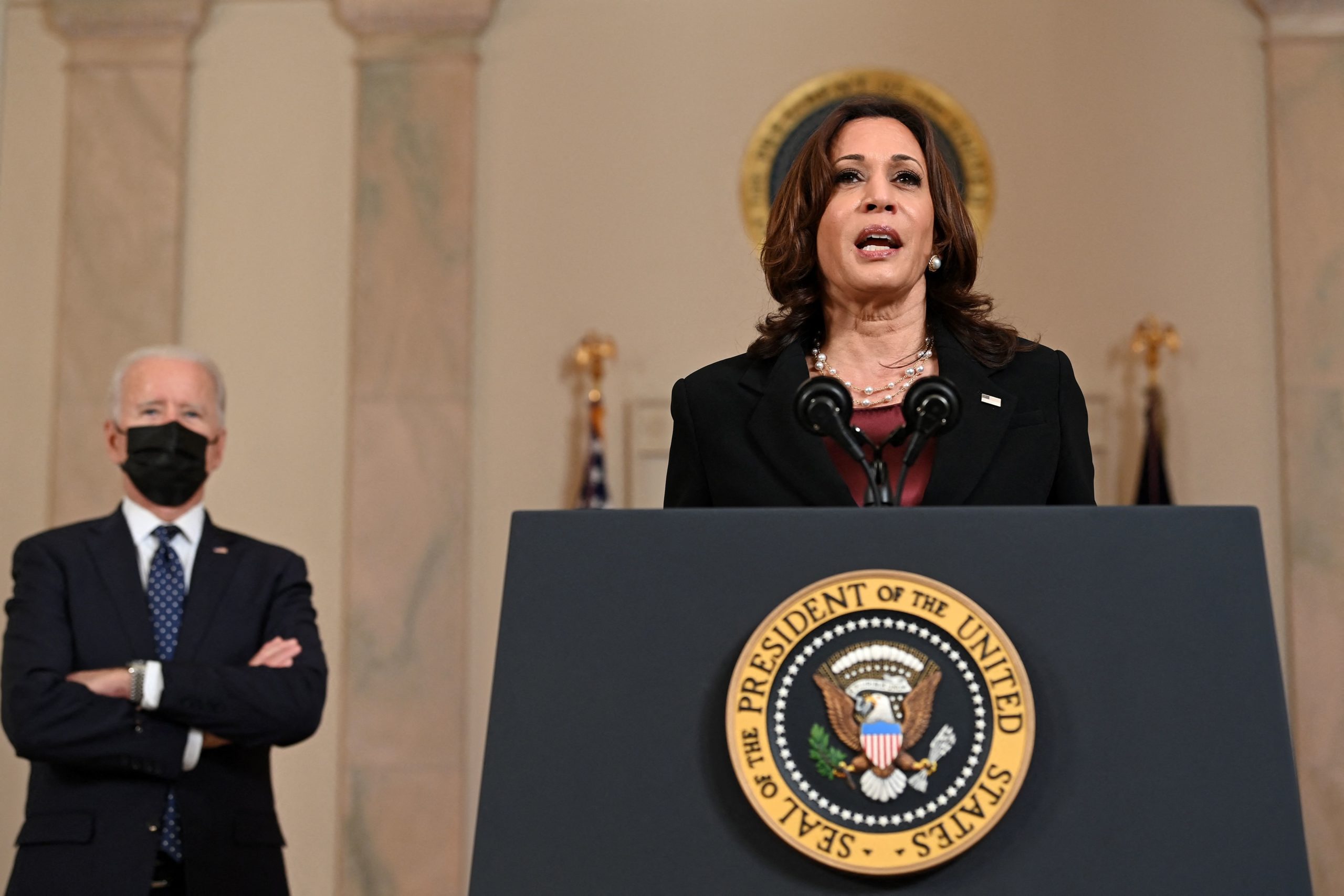President Joe Biden and Vice President Kamala Harris are kicking off the 2024 presidential election season with a trip that aims to turn its support among Black American voters around, according to Politico.
Biden plans to head to Charleston, South Carolina, on Jan. 8 to visit and speak at Mother Emanuel AME Church, one of the oldest black churches in the south, according to Politico. Harris will make a trip to the state just a few days earlier to speak to the Seventh Episcopal District AME Church Women’s Missionary Society as the joint visits are meant to signal that the administration and its leaders are not “taking the black vote for granted,” campaign aides told Politico. (RELATED: Biden Campaign Silent As Trump World Openly Lobs Debate Challenge)
“We’re not going to wait and parachute into these communities at the last minute and ask them for their vote. We’re going to earn their vote,” principal deputy campaign manager Quentin Fulks told the outlet. “We know that we have to communicate to these constituencies about what this administration has done. We have to communicate with these constituencies about the dangers that the other side poses. And we’re going to do both. But voters of color are the ones who have the most at stake in this election. And we need to make sure that every single one of them understands the choice in front of them.”
Less than a year before the 2024 election, Biden’s support among black voters is waning. In a recent GenForward survey, Biden received 63 percent of the black vote, while 20% of the voting bloc said they wouldn’t choose either former President Donald Trump or Biden in the 2024 election. Biden received 92 percent support from black voters in the 2020 election while Trump got 8 percent of the vote, according to the Pew Research Center.
Recognizing an issue, White House aides reportedly met with prominent black male Democrats in December to discuss how to win the support back of the key voting bloc, attendees told The New York Times (NYT). Those in attendance agreed that the president has focused more on black females since launching his presidential campaign in 2020, the NYT reported.

US President Joe Biden (L) listens as Vice President Kamala Harris delivers remarks on the guilty verdict against former policeman Derek Chauvin at the White House in Washington, DC, on April 20, 2021. (Photo by BRENDAN SMIALOWSKI/AFP via Getty Images)
The attendees of the meeting stressed that the White House has another messaging problem on its hands and has not done enough to tout how it has helped the voting bloc, the NYT reported.
“There are a lot of people who feel like they know he’s done something, they just can’t feel it yet. And they’re on the edge of their seat about when that’s going to come,” Antjuan Seawright, a South Carolina-based Democratic strategist, told Politico. “It’s like when the preacher says the blessing is on the way. You know it’s coming because you’ve always believed in it, but you haven’t felt the blessing yet.”
The trips at the beginning of the year are also an attempt to “cement” the state of South Carolina as the first in the nation primary state beyond the 2024 election, a senior Biden official told Politico.
“We are following through on the president’s commitment to have South Carolina go first,” the official told Politico. “I think people glance over that as they think about all these other process questions. But the president was very serious when [he said] he wanted to make sure that the Democratic primary spoke to the full diversity of the Democratic Party and making sure that the base of the party, black voters, had a say in the early stage of the process.”


